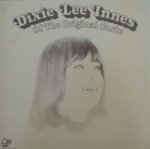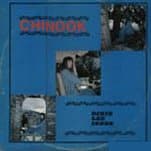1967: "The Ecstasy of Rita Joe" by George Ryga premieres in two acts at the Vancouver Playhouse Theatre and stars Ann Mortifee. Directed by George Bloomfield, it was one of the first dramas to address Aboriginal peoples' stories. It was also dapted as a ballet by the Royal Winnipeg Ballet in 1971. In 1976, it premiered in Washington, DC and starred Chief Dan George.
1959: Hank Snow peaks on Billboard's country chart at #3 with "The Last Ride."
1968: The Paupers are in Toronto for a teen dance at Neil McNeil's High School.
1973: Mahogany Rush is in Detroit for a show at Masonic Temple Theatre.
1973: It's night three of five for Anne Murray at The Troubador in LA.
1974: BTO ends three weeks on top of Canada's singles chart with "You Ain't Seen Nothin' Yet."
1974: Andy Kim's self titled album peaks at #21 on the Billboard chart.
1974: Gino Vannelli's "People Gotta Move" peaks on Billboard's chart at #22."
1978: Streetheart is in Winnipeg for a show at the Playhouse Theatre.
1979: Ironhorse peak at #36 on the Billboard chart with "Sweet Lui-Louise."
1981: Straight Lines and Klaatu open for Prism at the Danforth Music Hall in Toronto.
1982: Coney Hatch opens for Judas Priest in Phoenix for a show at Arizona Veterans Memorial Coliseum.
1983: Coney Hatch is in Quebec City for the first of a two night stand at Bar Rock Rive Sud.
1985: Nick Gilder is on American Bandstand, performing "Footsteps."
1987: Helix and Haywire are in Edmonton for a show at the Convention Centre.
1991: Bryan Adams' "Can't Stop This Thing We Started" is atop the Canadian singles chart for the third straight, and fourth overall, and last week.
1991: Infidels see "100 Watt Bulb" peak at #25 on the Canadian pop singles chart.
1993: Cowboy Junkies release their PALE SUN CRESCENT MOON album.
1996: Tragically Hip are in Detroit for a show at Cobo Hall. It becomes their live album a year later.
2003: The annual SOCAN Awards gala takes place in Toronto. Picking up various awards are Shirley Eikhard, Corey Hart, Lawrence Gowan, Chad Kroeger of Nickelback, Tom Cochrane, and Carolyn Dawn Johnson, among others.
2011: Early Newfie/country star Ben Weatherby succumbs to cancer in his home in Miramichi, NB. He was 75.
2012: Front Line Assembly release their AIRMECH album.
2013: April Wine is in Edmonton for a show at Century Casino for the second of a two-night stand.
2014: Kingdoom release their sophomore album, STAND UP CHAMELON.
2016: Mother Mother release the single and video for, "The Drugs."
2016: Gordon Lightfoot releases his first new song in 12 years, "Plans of My Own."
2017: Enrights open for The Trews in Kingston, Ontario at the Ale House.
2017: Taking a break from Styx, Gowan goes it alone and is in London, Ontario for a show at the London Music Hall.
2017: George Canyon is in Drayton Valley, Alberta for the first of two sold out shows at the Omniplex.
2017: Thor, featuring Frank Soda, are in London, Ontario for a show at Call The Office.
2019: Winnie Brave are in Brooks, Alberta to close out a two night run at Piston Broke Brewing.
2019: Skip The Future release their new single and video, "Just A Dream."
2019: Sly's Regard release their new single and video, "Devil In Me."



